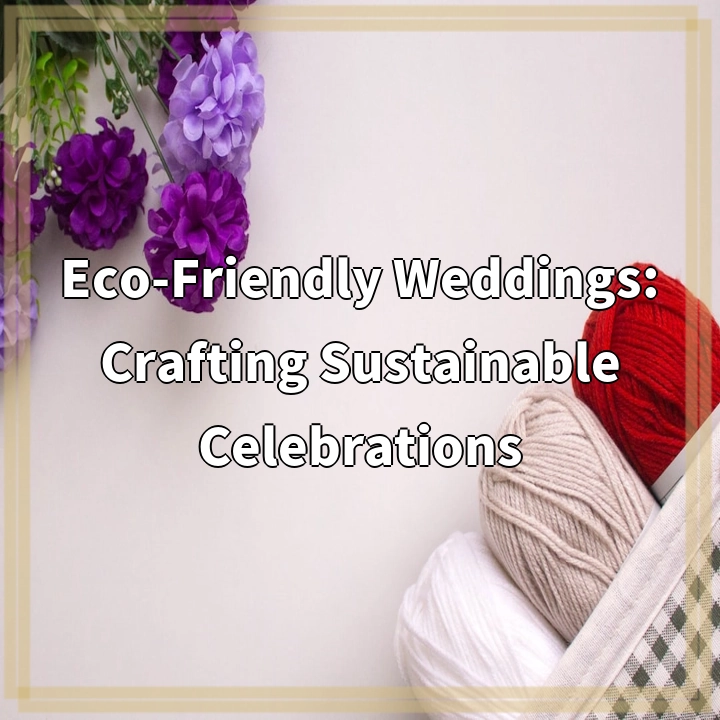
What it is:
Eco-friendly weddings, also known as sustainable weddings, are marriage celebrations that prioritize environmental consciousness in their planning and execution. These weddings aim to minimize their ecological footprint and promote sustainable practices throughout all aspects of the event, including venue selection, décor, food and beverage choices, transportation, and waste management.
Real-world problems associated with Eco-Friendly Weddings:
1. Venue sustainability:
One of the challenges faced in organizing eco-friendly weddings is finding venues that align with sustainable principles. Many traditional wedding venues have significant carbon footprints due to excessive energy consumption, water usage, and waste generation. Locating eco-conscious venues that operate with renewable energy sources, promote water conservation, and implement efficient waste management systems can be a hurdle.
2. Green transportation:
Transportation is another key issue in eco-friendly weddings. Guests often need to travel long distances to attend weddings, resulting in carbon emissions from flights or long car journeys. Encouraging alternative transportation options, such as carpooling, using public transport, or even arranging shuttle services, can help minimize the environmental impact associated with guests’ travel.
3. Ethical sourcing and food waste:
Choosing sustainably sourced and organic food and beverages is vital for eco-friendly weddings. However, sourcing such options may pose challenges, as finding local, organic, and fair-trade suppliers can be limited in certain regions. Additionally, minimizing food waste during the event requires effective planning and coordination to ensure that portions are appropriate and any excess food is properly donated or composted.
4. Sustainable décor and waste management:
Traditional wedding decorations often involve single-use items, excessive floral arrangements, and plastic-based materials that contribute to environmental pollution. Using eco-friendly alternatives, such as natural and biodegradable décor, recycled or upcycled materials, and promoting recycling and composting throughout the event, can help reduce waste and lessen the environmental impact of weddings.
5. Balancing aesthetics and environmental impact:
Achieving a balance between creating a visually appealing wedding and minimizing the environmental impact can sometimes present a challenge. It requires thoughtful planning and research to find sustainable alternatives for various elements, like wedding attire, stationery, and favors, without compromising on style and aesthetics. Striking this balance is crucial for the success of eco-friendly weddings.

Solutions for Eco-Friendly Weddings:
1. Select sustainable venues:
When planning an eco-friendly wedding, opt for venues that prioritize sustainability. Look for venues with green certifications, energy-efficient systems, and waste reduction programs. Outdoor venues can also be considered to minimize energy usage.
2. Encourage green transportation:
Encourage guests to use eco-friendly transportation options, such as carpooling or public transit. Provide information on local transportation options and promote the concept of “leave no trace” by minimizing travel distances and offsetting carbon emissions.
3. Choose sustainable food and reduce waste:
Prioritize locally sourced, organic, and sustainably produced food and beverages. Work closely with caterers who focus on minimizing food waste and have provisions for donating excess food to local charities. Implement proper waste management practices like recycling and composting.
4. Incorporate eco-friendly décor:
Opt for sustainable décor options such as recycled or upcycled materials, locally sourced flowers, and biodegradable decorations. Use reusable items wherever possible and choose vendors that support eco-friendly practices.
5. Find a balance between aesthetics and sustainability:
Look for eco-friendly alternatives for wedding attire, stationery, and favors without compromising on style. Choose sustainable fabrics, recycled paper, and socially responsible vendors. Embrace the concept of minimalism and incorporate natural elements into the design.
6. Educate and inspire:
Use your eco-friendly wedding as an opportunity to educate and inspire others. Share your journey on social media, blog about your experience, and provide practical tips for planning sustainable weddings. By leading by example, you can encourage others to adopt eco-friendly practices in their own celebrations.















